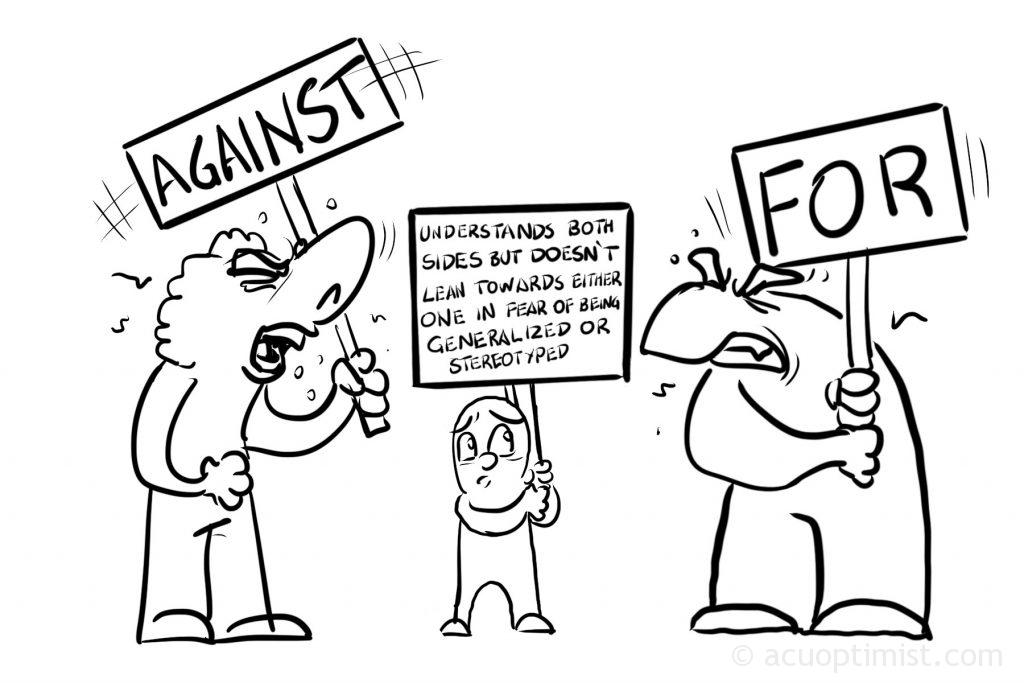Just when we thought all the politically divided protests were behind us, President Donald Trump issued an executive order to ban refugees and the Facebook/media battleground was stirred into turmoil again. Some say we need to protect our country, some say Obama did the same thing so we shouldn’t question Trump, while others say not accepting refugees into the country is a shame to the Statue of Liberty. But we can’t boil it down to just one issue. Like many other controversial political topics, it’s complicated by different interests and values.
The problem with discussions about the refugee ban happens when we divide ourselves into the “good” side and everyone who disagrees into the “wrong” side.
The executive order does two main things: first, it temporarily bans immigrants from seven countries from seeking refuge in the United States for 120 days – except Syrian refugees, who are banned indefinitely. Second, it will only allow the entry of 50,000 total refugees in 2017 – in comparison, the U.S. accepted 85,000 in 2016.
On one side, supporters of the ban say the U.S. has every right to protect itself from potential terrorism and other threats linked to radical Islam. It’s like the U.S. is a house. You probably wouldn’t let a complete stranger stay in your house without first getting to know them. You want to know how long they’ll stay, where they came from, and if they have integrity. If you have been subject to an assault or theft in the past, you may be less likely to invite a stranger in your house – it just depends on how safe you feel with that stranger.
Those who support the ban say the U.S. has suffered attacks from terrorists in the past, so it makes sense to close the door of the country until the nation is safe.
But those who oppose the ban are concerned with excluding the refugees whose lives are in danger. Immigrants who were already visa-approved and who were traveling as the order took effect were detained in airports around the country while immigration workers tried to figure out what to do, which sparked protests as people called for the release of the immigrants.
Others say the ban threatens the core of our country by imposing unconstitutional discriminations. Though the ban is based on specific countries, not religion, the countries listed on the ban are Muslim-majority countries, which makes it look like a strike against freedom of religion.
Christians say God wants us to take care of foreigners. In Leviticus 19:34, God speaks to the Israelites and reminds them of how they were bound to the land of Egypt – how they were once foreigners themselves. Although this commandment was written for those following the Jewish faith, the question of whether it pertains to our current situation is one that rests heavy on our hearts. From church to church, Christians are battling with a policy that seems reputable and repulsive at the same time.
So which is better for our country? Safety or hospitality? The answer is neither. The safer we are, the more hospitable we can be. The more hospitable we are, the more strong our nation can be. But we don’t know the future. So how can we divide ourselves into camps -black and white, right and wrong -criticizing our family members and friends for choosing a side?
As Christians, we are called to love one another (cue the chapel choir) and fight for those who cannot fight for themselves. As Americans, we are called to fight for each other as well as the deliverance from oppressive authorities. As people, we are called to lift each other up and not ignore those who seek relief. We were given the privilege to live in a country where we are free to voice our concerns. Yet, we remain silent for those who do not look like us – the strangers with accented voices.


What a disappointing and ineffective last line to an otherwise well-written article about a complex topic. After carefully weaving through explanations of the many sides of these issues, the author decides to advance a trite, clichéd trope that such problems rest with people’s sense of tribalism. The vast majority of people I know, at ACU and elsewhere, search diligently to find ways to be hospitable to the affected populations while considering the country’s safety at the same time. It’s a moment pretty unique to our country, and despite charged rhetoric, I’d say people are trying to find a way forward.
The author’s decision to end the article with accusations of “remaining silent” toward “others” is weak, lazy, and regrettable.